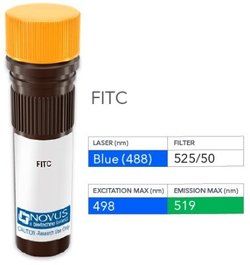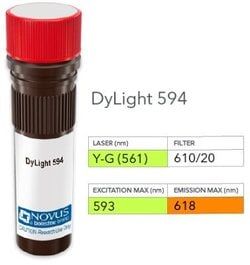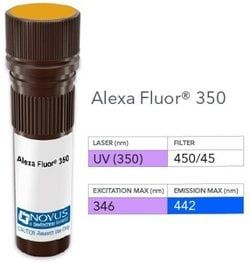CD68/SR-D1 Antibody (KP1 + C68/684), FITC, Novus Biologicals™
Manufacturer: Novus Biologicals
Select a Size
| Pack Size | SKU | Availability | Price |
|---|---|---|---|
| Each of 1 | NB006298-Each-of-1 | In Stock | ₹ 57,494.00 |
NB006298 - Each of 1
In Stock
Quantity
1
Base Price: ₹ 57,494.00
GST (18%): ₹ 10,348.92
Total Price: ₹ 67,842.92
Antigen
CD68/SR-D1
Classification
Monoclonal
Conjugate
FITC
Formulation
PBS with 0.05% Sodium Azide
Gene Symbols
CD68
Immunogen
This CD68/SR-D1 Antibody (KP1 + C68/684) was developed against subcellular fraction of human alveolar macrophages (KP1); Recombinant human CD68 protein (C68/684).
Quantity
0.1 mL
Research Discipline
Cell Biology, Cytokine Research, Immunology, Microglia Markers
Test Specificity
This antibody recognizes a glycoprotein of 110kDa, which is identified as CD68. It is important for identifying macrophages in tissue sections. It stains macrophages in a wide variety of human tissues, including Kupffer cells and macrophages in the red pulp of the spleen, in lamina propria of the gut, in lung alveoli, and in bone marrow. It reacts with myeloid precursors and peripheral blood granulocytes. It also reacts with plasmacytoid T cells, which are supposed to be of monocyte/macrophage origin. It shows strong granular cytoplasmic staining of chronic and acute myeloid leukemia and also reacts with rare cases of true histiocytic neoplasia. Lymphomas are negative or show few granules.
Content And Storage
Store at 4°C in the dark.
Applications
Flow Cytometry, Immunohistochemistry, Immunocytochemistry, Immunofluorescence, Immunohistochemistry (Paraffin), Immunohistochemistry (Frozen)
Clone
KP1 + C68/684
Dilution
Flow Cytometry, Immunohistochemistry, Immunocytochemistry/Immunofluorescence, Immunohistochemistry-Paraffin, Immunohistochemistry-Frozen, Flow (Intracellular)
Gene Alias
CD68 antigenmacrophage antigen CD68, CD68 molecule, DKFZp686M18236, GP110, macrosialin, SCARD1, scavenger receptor class D, member 1
Host Species
Mouse
Purification Method
Protein A or G purified
Regulatory Status
RUO
Primary or Secondary
Primary
Target Species
Human, Feline, Primate, Rat (Negative)
Isotype
IgG1 κ
Description
- CD68/SR-D1 Monoclonal specifically detects CD68/SR-D1 in Human, Mouse, Rat, Feline, Monkey samples
- It is validated for Flow Cytometry, Immunohistochemistry, Immunohistochemistry-Paraffin, Flow (Intracellular).



